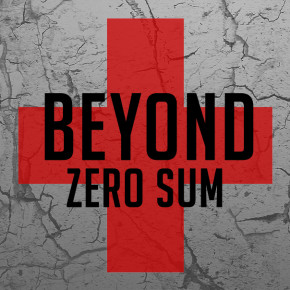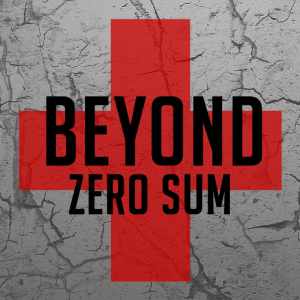 In my previous column, I touched on the American role in the Syrian civil war by pointing out that, at the time, we were lending financial assistance to rebel forces opposed to the Assad regime. State-sponsored violence including the targeted eradication of women and children served as strong justification for the call to oust President Bashar al-Assad from power. Indeed, the figure that was most quoted in the press was 70,000 lives claimed in less than two years. However, the United Nations Human Rights Office has just updated its data and confirmed that the Syrian Civil War has claimed 93,000 lives, including 6,000 children, and has created 1.6 million refugees from March 2011 to April 2013. The shocking degree of violence is what brought me to suggest that Americans, including us medical students, ought to tread very carefully through a situation which one Stanford physician warned could become the “greatest humanitarian catastrophe of the 21st century so far.”
In my previous column, I touched on the American role in the Syrian civil war by pointing out that, at the time, we were lending financial assistance to rebel forces opposed to the Assad regime. State-sponsored violence including the targeted eradication of women and children served as strong justification for the call to oust President Bashar al-Assad from power. Indeed, the figure that was most quoted in the press was 70,000 lives claimed in less than two years. However, the United Nations Human Rights Office has just updated its data and confirmed that the Syrian Civil War has claimed 93,000 lives, including 6,000 children, and has created 1.6 million refugees from March 2011 to April 2013. The shocking degree of violence is what brought me to suggest that Americans, including us medical students, ought to tread very carefully through a situation which one Stanford physician warned could become the “greatest humanitarian catastrophe of the 21st century so far.”
Recent headlines confirm that support for groups opposed to the Assad regime has dramatically shifted from ambiguous financial assistance to material contribution in the form of small armaments and ammunition. From a global health perspective, it’s not quite clear how this move would potentially benefit the struggling civilian and refugee populations. Indeed, the decision has left many wondering whether it will simply prolong the war. For medical students and professionals keen on global health, the predicament of those caught in the crossfire is the chief concern. Consequently, in contrast to achieving strategic objectives, ending the war quickly so as to minimize crossfire and facilitate safe return is the more pertinent goal per se in a humanitarian context.
Accordingly, there are a several global health practitioners and organizations that have remained focused on the eroding health infrastructure not just in Syria, but in adjacent refugee camps as well. Responding to the escalating humanitarian quagmire, the editorial board of The Lancet recently published a statement emphasizing the “right to health for Syrian refugees.” It notes that almost 4.25 million Syrian residents out of a population of over 22 million have been internally displaced and are carrying on in precarious, overcrowded and unsanitary conditions. Furthermore, the World Health Organization is anticipating increased cases of acute watery diarrhea as well as outbreaks of water-borne diseases such as hepatitis, typhoid, cholera and dysentery.
Importantly, diarrheal diseases are a major killer in regions with poor water and sanitation infrastructure. Sewage, electricity and water systems are totally inadequate in major cities due to conflict-related destruction. Furthermore, medical facilities and practitioners have been deliberately targeted by combatants practicing an uncommon brand of warfare which violates medical neutrality principles set out in the Geneva Conventions and other foundations of international law. Under such conditions, simple waterborne diseases that are virtually harmless or unusual in the United States can be potentially disastrous for Syrian civilians that lack access to the proper supplies and personnel.
Thus, the work of humanitarian groups has been very significant. For example, the Syrian Arab Red Crescent is an organization whose members have continued to volunteer aid in the conflict even while at great personal risk. As reported in The New York Times, one volunteer, a dental student, acknowledges that “civilians are paying the price from both sides” and notes that “if you give first aid to one side, the other side thinks you are with that side.” The bleak picture he paints underscores the resolve displayed by the volunteers:
“International aid workers say the group’s evolution also appears to be driven by new volunteers, starved for meaningful civic action, who take the mission of serving all sides seriously. Volunteers coordinate with security forces and rebels to cross battle lines. Permission is often denied, and when it is granted it does not equal protection.”
Fortunately, global health efforts will likely be bolstered substantially by the $300 million in humanitarian aid pledged by President Obama that will dispensed alongside the military aid discussed above. The announcement came during the 39th G8 Summit which was dominated by discussion of the war in Syria. According to the White House, $128 million will go toward emergency medical supplies, clothing, shelter and flour wheat for aid efforts inside Syria. The remaining sum will go toward providing assistance to displaced refugees in neighboring Turkey, Jordan, Egypt and Iraq.
Though the United States has been the biggest donor of aid money—over $800 million—during the war, the United Nations High Commissioner for Refugees (UNHCR) has indicated that basic needs have not yet been met. It has received $1 billion so far and is seeking an additional $4 billion while stating “the funds we are appealing for are a matter of survival for suffering Syrians.” At $5 billion, the appeal stands as the largest request ever made by the UN for humanitarian aid, demonstrating further the need for basic resources.
Incidentally, Angelina Jolie has since joined the fray to call attention to the deterioration in her capacity as special envoy to the UNHCR. She visited Za’atri refugee camp in Jordan on June 20 to mark World Refugee Day. Her call for world leaders to “set aside [their] differences [and] unite to end the violence” could easily be dismissed as trite and self-important. But a quick Google search of the event makes clear how irrelevant such dismissals are: it was instant news all around the world. Of course, not everyone can command headlines like an international celebrity can. Such as it is, if there is a point to this column, it would be that spreading the word is laying the groundwork for more meaningful action.
Beyond Zero Sum is a column that examines the civilian consequences of the Syrian civil war as well as the responses of the international medical community to the rapidly escalating crisis. It takes its name from a reflection by Bill Clinton on humanity in the 21st century: “The more complex societies get and the more complex the networks of interdependence within and beyond community and national borders get, the more people are forced in their own interests to find non-zero-sum solutions. That is, win-win solutions instead of win-lose situations because we find, as our interdependence increases, that, on the whole, we do better when other people do better as well.”

